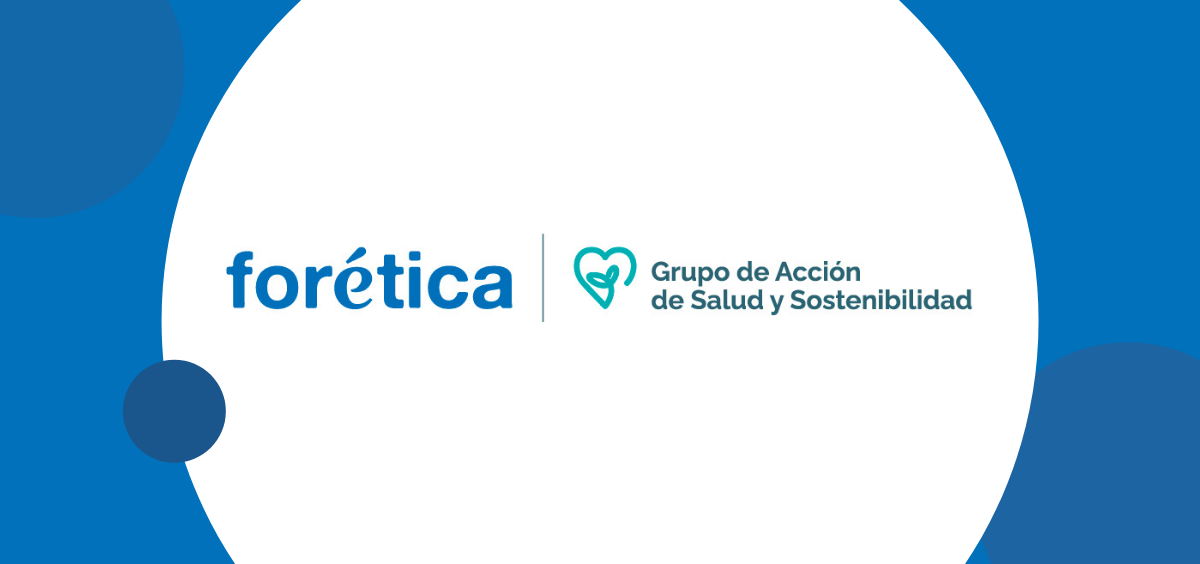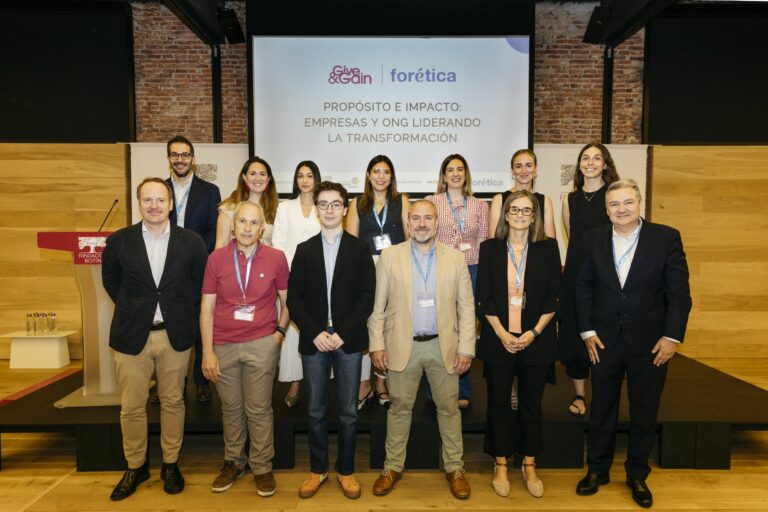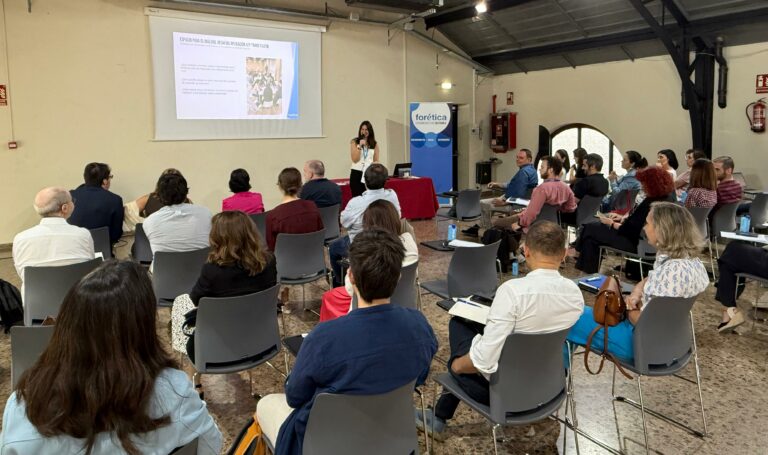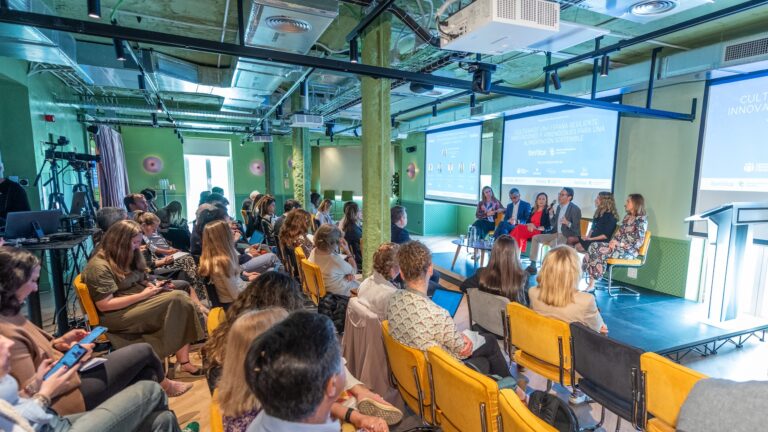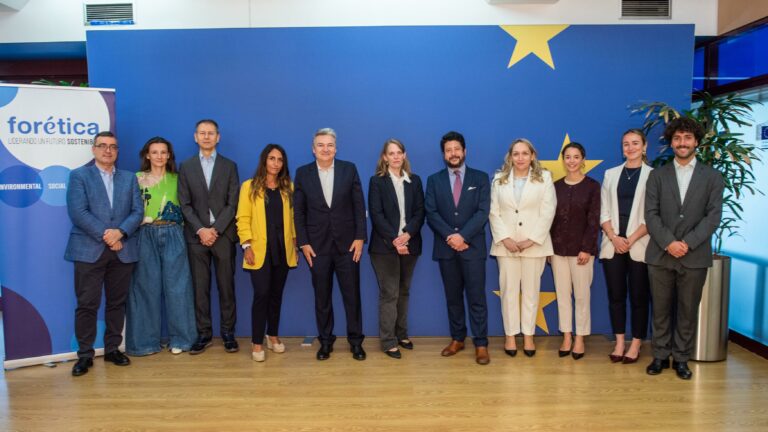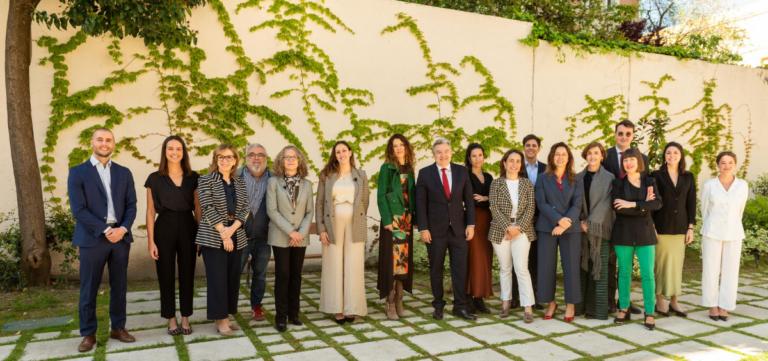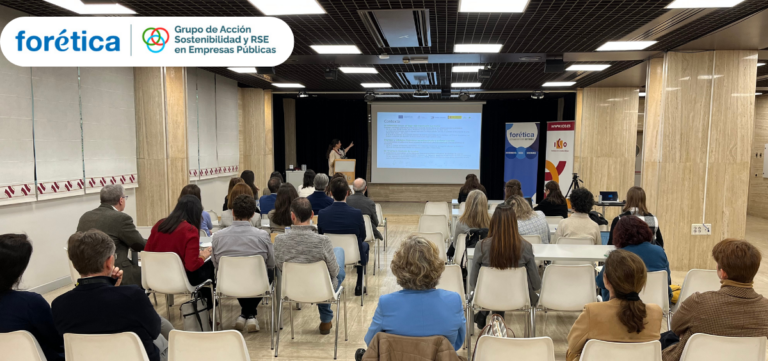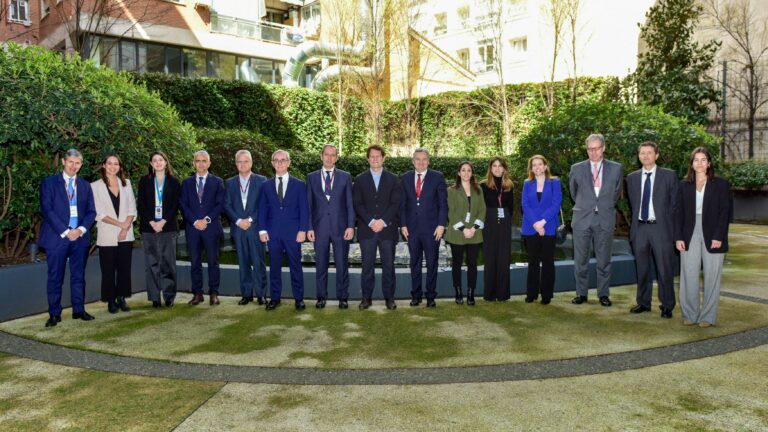- En su cuarta edición, el Grupo de Acción de Salud y Sostenibilidad liderado por Forética y compuesto por 23 grandes empresas -encabezadas por Chiesi, Grupo ASISA y Quirónsalud- se centrará en profundizar en la responsabilidad que tienen las empresas de actuar en materia de salud mental, con el objetivo de maximizar su contribución positiva a la salud y el bienestar de las personas
- Según la tercera edición del ‘Observatorio IBEX 35. Salud, Bienestar y Sostenibilidad en las empresas del IBEX 35’ de Forética -recientemente publicado en el marco del Grupo de Acción- en 2021 el 70% de las empresas analizadas contaban con algún programa específico sobre salud mental para sus empleados, frente al 36% que lo hacían en 2020
El Grupo de Acción de Salud y Sostenibilidad, liderado por Forética y compuesto por 23 grandes empresas -encabezadas por Chiesi, Grupo ASISA y Quirónsalud-, centrará su cuarta edición en abordar la integración de la salud mental en la estrategia empresarial y la responsabilidad que tienen las empresas de actuar, con el objetivo de poder prevenir, proteger, medir y maximizar su contribución positiva a la salud y el bienestar de las personas.
Según la Confederación Salud Mental España, 1 de cada 4 personas tiene o tendrá algún problema de salud mental a lo largo de su vida. Concretamente en España, se considera que entre el 11% y el 27% de los problemas de salud mental se pueden atribuir a las condiciones de trabajo, según la Federación Mundial de la Salud Mental (WFMH).
La Organización Mundial de la Salud destaca el gran impacto que este reto tiene en la actividad de todos los sectores económicos. La economía mundial pierde alrededor de un billón de dólares al año de productividad solo por casos de ansiedad y depresión. De hecho, el coste total de los problemas de salud mental en España es de un 4,2% del PIB (aproximadamente 45.000 millones de euros). Según las estimaciones de McKinsey, invertir en salud mental de los empleados tiene un retorno económico para las organizaciones de 4,25 dólares por cada dólar invertido.
Ricardo Trujillo, Director de Impacto Social y Capital Humano de Forética, afirma: “Más allá de la salud física, las empresas dan cada vez una mayor importancia al cuidado de la salud mental de sus trabajadores, un tema de total actualidad ante los impactos de la COVID-19 y el actual contexto económico y social provocado por la crisis geopolítica. Las empresas están reforzando su aproximación a los aspectos vinculados a la salud y el bienestar como destaca la hoja de ruta ‘Visión 2050’, integrándolos como eje de sus estrategias de sostenibilidad’.
De hecho, según la tercera edición del ‘Observatorio IBEX 35. Salud, Bienestar y Sostenibilidad en las empresas del IBEX 35’ de Forética -recientemente publicado en el marco del Grupo de Acción- en 2021 el 70% de las empresas analizadas contaban con algún programa específico sobre salud mental para sus empleados, frente al 36% que lo hacían en 2020. El hecho de que este dato se haya duplicado en apenas un año muestra la creciente importancia que están otorgando las empresas españolas a cuidar la salud mental de sus empleados.
María Ordovás, Manager del Grupo de Acción de Salud y Sostenibilidad, destaca: “La promoción de la salud mental por parte de las compañías conlleva numerosos beneficios para las mismas. Entre ellos destaca el aumento de la productividad, la disminución del absentismo laboral, la minimización de la rotación laboral o la rebaja de costes sanitarios. Las empresas dan cada vez un rol más activo a los empleados en materia de salud y bienestar, otorgándoles voz y fomentando su participación a través de distintas herramientas”.
Según el mencionado Observatorio publicado por Forética, en 2021 un 88% de las empresas del IBEX 35 contaban con algún mecanismo de este tipo. Esto se debe a que la escucha activa se configura como un elemento fundamental en el proceso de integración de la cultura del bienestar en la empresa. Este es un proceso que consta de 4 elementos fundamentales: el compromiso, la identificación (donde se encuadra la importancia de dar voz a los trabajadores), la implementación y, por último, la monitorización y evaluación.
El ‘Grupo de Acción de Salud y Sostenibilidad’, encabezado por Chiesi, Grupo ASISA y Quirónsalud, cuenta además con un conjunto de empresas participantes: Accenture, Alsea, Grupo Antolín, CAPSA Food, Cellnex, ENAIRE, GSK, Ibercaja, ILUNION, Johnson & Johnson, LafargeHolcim, Lilly, Mahou San Miguel, Microsoft, Redeia, Sanitas, SENASA, Vithas, Santander y Tüv Rheinland.
La primera reunión anual del Grupo de Acción organizada por Forética ha contado con la participación del Director de la Oficina de la Organización Internacional del Trabajo (OIT) en España, Félix Peinado, quien ha abordado la importancia del vínculo entre trabajo y salud mental y la necesidad de actuación por parte de empresas y administraciones públicas para enfrentar este reto, en línea con el documento recientemente publicado por la Organización Internacional del Trabajo y la Organización Mundial de la Salud bajo el título ‘Mental health at work: Policy brief’.
Sobre el Grupo de Acción de Salud y Sostenibilidad
El Grupo de Acción constituye un punto de encuentro empresarial para el liderazgo, conocimiento y diálogo para poner en valor la salud y bienestar como un eje fundamental de la sostenibilidad de las empresas.
El Grupo ha enfocado su tercera edición en 2022 principalmente en profundizar sobre la ‘huella de salud’ de las compañías desde dos ángulos: el impacto en la salud de sus empleados, con foco en salud mental; y la contribución empresarial a la salud de sus clientes y consumidores a través de una oferta de productos y servicios saludables. En el marco del III Foro Empresarial: Salud y Desarrollo Sostenible (ODS 3) se presentó el informe ‘Salud y Bienestar 2030: Explorando el alcance de la huella de salud de las empresas’.
El Grupo trabajó en su segunda edición la vinculación entre cambio climático y salud humano, identificando cuatro palancas para guiar a las empresas hacia una acción más integrada de estos dos aspectos como parte de su estrategia de sostenibilidad, como se destaca en el informe ’Salud y Bienestar 2030: Integración en la estrategia empresarial. El cambio climático y la salud. La nueva frontera de la sostenibilidad’.
Durante el primer año de trabajo, el Grupo puso el foco en analizar el business case de la salud y la sostenibilidad con el fin de identificar una hoja de ruta para la integración del ODS 3 en la estrategia de las organizaciones.

